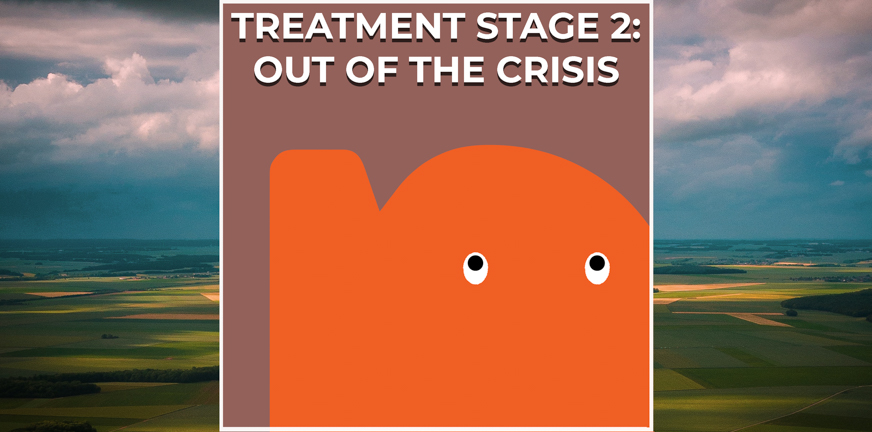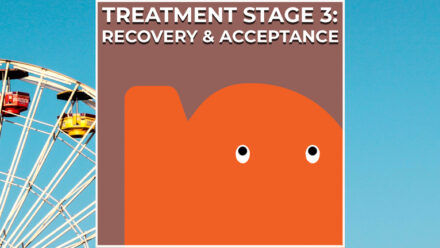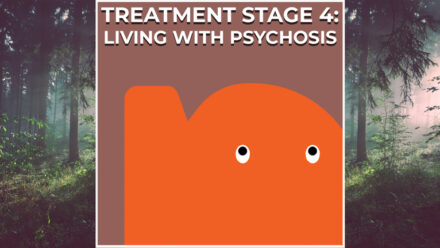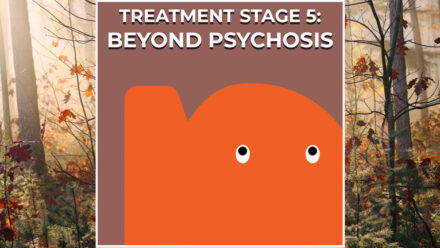
When your psychotic experience has completely taken over, professional help is often useful. At this stage you reside too much in your inner world and your actions may result in social conflicts.
You might think you know what is best for you, but unfortunately, the opposite may also be true at this point.
Avoiding the crisis
In this phase, the goal of treatment is first to avoid the crisis and reduce the acute psychosis. Antipsychotics and/or medication to calm you down, can help to regain control of the situation. But antipsychotics are not always necessary – some people can recover without the use of an antipsychotic. A doctor or psychiatrist may advise using medicines for a while to get someone out of the psychotic episode. But antipsychotics are not a cure; they only reduce the symptoms, and do not take away the cause of psychosis nor solve the underlying problems.
Medication eases symptoms, but are no cure
The medication simply reduces the symptoms by flattening your feelings – including negative feelings associated with psychotic experiences. This can help you regain some control over your life and give you some room to consider what is happening and what you need to do. However, sleep medication and medication to calm you down (benzodiazepines), can be addictive. It is therefore important to keep an eye on how long you use them, together with your doctor or psychiatrist. This also applies to antipsychotics. Having to be on antipsychotics for the rest of your life is a myth. Guidelines state that 1 year after the psychotic episode, you should gradually be able to stop using medication or bring them down to the lowest possible dosage.
Support from family/friends
Psychosis is not just overwhelming for the individual, but also for their family and friends. Therefore proper treatment at this stage will also be focusing on the people around you. What does your partner need? Or your children? What can relatives and friends do? What support do the people around you need?
The search for the best place to recover from psychosis, needs to be done together. If your home is safe enough and your family is able to support you, you could recover at home. If there is a lot of resistance, or the situation at home is not safe an peaceful, it may be necessary to be admitted to hospital. Care providers will first see what is possible at home and how much professional support would be needed, such as Open Dialogue, Home Treatment, or the Early Intervention in Psychosis– or FACT team.
Many people think that you always have to stay in a hospital during psychosis. But in most cases that´s not the most logical, or even a helpful solution. Hospitals are not nice places, particularly if you are in a mental crisis. Therefore, admission is only useful if safety is an issue.
Involuntary admission
Sometimes a crisis can be so overwhelming that it even becomes dangerous, to yourself or other people. When a psychotic person refuses admission to a hospital, involuntary (forced) admission may be necessary. This step can be very upsetting. In a secure ward the main priority is to establish contact and trust, and to reduce the psychotic state. You may be put on medication to ease your symptoms. The nursing staff monitors your response to the medication and once a week (or more) you talk to a doctor. Some activities are offered during admission to structure your day, such as sports, occupational therapy and psychoeducation. Modern institutions rapidly offer contact with a person with lived experience to support you. This can be very important but is not offered routinely.
What has happened?
When the crisis is under control again, the treatment focuses on helping you to take a step back from the unpleasant psychotic experiences and to start thinking about the causes. It is important that your therapists take a good look at what has happened to you (during AND before the psychotic episode!) and what kind of treatment is best for your situation. So what’s needed is a personalised diagnosis, followed by personal treatment. The stage of being overwhelmed can often be treated well with a combination of information, medication, psychotherapy and support by people with loved experience of psychosis. There are different types of psychotherapy – personal preference is important in choosing one.




